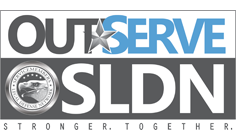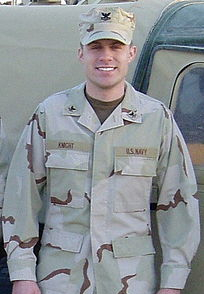
"Don't ask, don't tell" (DADT) was the official United States policy on military service of non-heterosexual people. Instituted during the Clinton administration, the policy was issued under Department of Defense Directive 1304.26 on December 21, 1993, and was in effect from February 28, 1994, until September 20, 2011. The policy prohibited military personnel from discriminating against or harassing closeted homosexual or bisexual service members or applicants, while barring openly gay, lesbian, or bisexual persons from military service. This relaxation of legal restrictions on service by gays and lesbians in the armed forces was mandated by Public Law 103–160, which was signed November 30, 1993. The policy prohibited people who "demonstrate a propensity or intent to engage in homosexual acts" from serving in the armed forces of the United States, because their presence "would create an unacceptable risk to the high standards of morale, good order and discipline, and unit cohesion that are the essence of military capability".
Lesbian, gay, bisexual, transgender, and queer (LGBTQ) personnel are able to serve in the armed forces of some countries around the world: the vast majority of industrialized, Western countries including some South American countries such as Argentina and Chile in addition to South Africa, and Israel. The rights concerning intersex people are more vague.
Charles Constantine Moskos, Jr. was a sociologist of the United States military and a professor at Northwestern University. Described as the nation's "most influential military sociologist" by The Wall Street Journal, Moskos was often a source for reporters from The New York Times, The Washington Post, Los Angeles Times, Chicago Tribune, USA Today, and other periodicals. He was the author of the "don't ask, don't tell" (DADT) policy, which prohibited homosexual service members from acknowledging their sexual orientation from 1994 to 2011.

Andrew Holmes v. California National Guard, 124 F.3d 1126 was a federal court case heard by the Ninth Circuit Court of Appeals, that upheld the "don't ask, don't tell" policy that restricted service by gays and lesbians in the California National Guard of the United States. The court decided that a member of the National Guard could not be discharged for saying publicly that he or she is homosexual or bisexual, but could be restricted to assignments that did not require recognition by the federal government.
Joseph Charles Steffan is an American lawyer and gay activist. He was expelled from the U.S. Naval Academy in Annapolis in 1987 shortly before graduation after disclosing his homosexuality. He sued the U.S. Department of Defense, claiming that his oral avowal of homosexuality could not be construed as an indication that he ever had or intended to engage in sexual relations with another man. He lost a protracted court battle for reinstatement in 1994.
Darren Manzella was a United States Army Sergeant, Army medic and gay activist from Portland, New York, who was discharged under the Don't ask, don't tell policy. Manzella served in Iraq and Kuwait, and was stationed in Fort Hood, Texas.

Unfriendly Fire: How the Gay Ban Undermines the Military and Weakens America is an American 2009 political book by Nathaniel Frank that argues that the "Don't Ask, Don't Tell" policy banning openly gay servicemen and women from the United States armed forces weakened military and national security. According to Frank, 12,000 people — 800 of whom had previously been deemed "mission critical" by the U.S. government — were discharged from the military between 1993 and 2008, based on policies that Frank describes as "rooted in denial, and deception, and repression."
The United States Navy dog handler hazing scandal was a pattern of misconduct engaged in by members of the United States Navy at Naval Support Activity Bahrain between 2004 and 2006. Naval investigators documented nearly 100 incidents of abuse committed against several members of a Military Working Dog (MWD) unit stationed at the United States military base at Juffair. Documented incidents of abuse include racial intimidation, sexual harassment, physical abuse and anti-gay harassment. One sailor, Master-At-Arms 3rd Class Joseph Rocha, suffered post-traumatic stress disorder because of his abuse at the hands of fellow sailors, and he alleges that another sailor committed suicide because of her treatment. The Navy investigated the allegations in 2007 and documented the abuse, but took little substantive action. However, Pennsylvania Congressman Joe Sestak, a former Vice Admiral, demanded a new examination of the report's findings which led to the disciplining of Rocha's former superior, Chief Petty Officer Michael Toussaint. The scandal came to widespread public attention as United States President Barack Obama faced increased pressure to repeal the military's gay-exclusionary policy known as "don't ask, don't tell" (DADT).
The United States military formerly excluded gay men, bisexuals, and lesbians from service. In 1993, the United States Congress passed, and President Bill Clinton signed, a law instituting the policy commonly referred to as "Don't ask, don't tell" (DADT), which allowed gay, lesbian, and bisexual people to serve as long as they did not reveal their sexual orientation. Although there were isolated instances in which service personnel were met with limited success through lawsuits, efforts to end the ban on openly gay, lesbian, and bisexual people serving either legislatively or through the courts initially proved unsuccessful.

Log Cabin Republicans v. United States, 658 F.3d 1162 was a federal lawsuit challenging the constitutionality of 10 U.S.C. § 654, commonly known as don't ask, don't tell (DADT), which, prior to its repeal, excluded homosexuals from openly serving in the United States military. The Log Cabin Republicans (LCR), an organization composed of lesbian, gay, bisexual, and transgender (LGBT) Republicans, brought the suit on behalf of LCR members who serve or served in the military and were subject to DADT.

Witt v. Department of the Air Force, 527 F.3d 806 is a federal lawsuit that challenged the constitutionality of 10 U.S.C. § 654, the law, since repealed, that excluded openly homosexual people from serving in the United States military, commonly known as "Don't ask, don't tell" (DADT). The United States Court of Appeals for the Ninth Circuit ruled in 2008 that under Lawrence v. Texas DADT constitutes an "[attempt] to intrude upon the personal and private lives of homosexuals" and it is subject to "heightened scrutiny", meaning that the government "must advance an important governmental interest, the intrusion must significantly further that interest, and the intrusion must be necessary to further that interest."
Stephen Timothy May is an American politician who served in the Arizona House of Representatives. He was openly gay when he ran for and served in the legislature. He was nevertheless recalled to active duty in the military. He came to national attention in 1999 when the U.S. Army attempted to discharge him from the United States Army Reserve under the gay-exclusionary law known as "don't ask, don't tell" (DADT).

The Don't Ask, Don't Tell Repeal Act of 2010 is a landmark United States federal statute enacted in December 2010 that established a process for ending the "don't ask, don't tell" (DADT) policy, thus allowing gay, lesbian, and bisexual people to serve openly in the United States Armed Forces. It ended the policy in place since 1993 that allowed them to serve only if they kept their sexual orientation secret and the military did not learn of their sexual orientation, which was controversial.

OutServe-SLDN was a network of LGBT military personnel, formed as a result of the merger between OutServe and the Servicemembers Legal Defense Network. OutServe-SLDN was one of the largest LGBT employee resource groups in the world. OutServe was founded by a 2009 graduate of the US Air Force Academy, Josh Seefried and Ty Walrod. There were over 7,000 members and 80 chapters worldwide.

Maria Zoe Dunning is a U.S. Naval Academy graduate and gay rights activist. She is known for being the only openly gay person remaining on active duty in the U.S. military after coming out. She was involved in a series of lawsuits against the U.S. military and the Don't Ask, Don't Tell policy during the 1990s.
Collins v. United States is a class-action lawsuit filed on November 10, 2010, against the United States in the United States Court of Federal Claims that ended in a settlement on January 7, 2013.

Jase Daniels is a United States Navy linguist who was discharged from the military twice under the policy known as "don't ask, don't tell" (DADT). Daniels served from 2001 to 2005 and again from 2006 to 2007. After coming out in Stars and Stripes, a newspaper published under the sponsorship of the U.S. Department of Defense, Daniels challenged the "don't ask, don't tell" policy that forbade gay and lesbian service members from serving openly. His case attracted attention in such major U.S. media outlets as Newsweek and the New York Times. Daniels returned to active duty in the United States Navy on December 12, 2011, and is believed to be one of the first servicemembers, and perhaps the first, to return to active duty following the end of restrictions on service by openly gay and lesbian servicemembers in the U.S. Armed Forces.

United States military chaplains hold positions in the armed forces of the United States and are charged with conducting religious services and providing counseling for their adherents. As of 2011, there are about 2,900 chaplains in the Army, among the active duty, reserve, and National Guard components.
Keith Meinhold is an American former Navy first class petty officer. He is a veteran of the US Navy who successfully challenged the Navy's attempt to discharge him for coming out as gay in 1992 and ended his Navy career in 1996, one of the first openly gay U.S. service members to be honorably discharged.
Tracy William Thorne-Begland is an American judge on the General District Court of Richmond, Virginia, appointed in 2012. He was the first openly gay jurist elected by the Virginia General Assembly.








